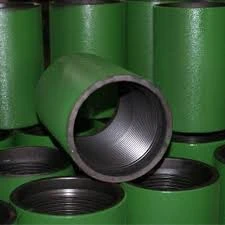- Afrikaans
- Albanian
- Amharic
- Arabic
- Armenian
- Azerbaijani
- Basque
- Belarusian
- Bengali
- Bosnian
- Bulgarian
- Catalan
- Cebuano
- Corsican
- Croatian
- Czech
- Danish
- Dutch
- English
- Esperanto
- Estonian
- Finnish
- French
- Frisian
- Galician
- Georgian
- German
- Greek
- Gujarati
- Haitian Creole
- hausa
- hawaiian
- Hebrew
- Hindi
- Miao
- Hungarian
- Icelandic
- igbo
- Indonesian
- irish
- Italian
- Japanese
- Javanese
- Kannada
- kazakh
- Khmer
- Rwandese
- Korean
- Kurdish
- Kyrgyz
- Lao
- Latin
- Latvian
- Lithuanian
- Luxembourgish
- Macedonian
- Malgashi
- Malay
- Malayalam
- Maltese
- Maori
- Marathi
- Mongolian
- Myanmar
- Nepali
- Norwegian
- Norwegian
- Occitan
- Pashto
- Persian
- Polish
- Portuguese
- Punjabi
- Romanian
- Russian
- Samoan
- Scottish Gaelic
- Serbian
- Sesotho
- Shona
- Sindhi
- Sinhala
- Slovak
- Slovenian
- Somali
- Spanish
- Sundanese
- Swahili
- Swedish
- Tagalog
- Tajik
- Tamil
- Tatar
- Telugu
- Thai
- Turkish
- Turkmen
- Ukrainian
- Urdu
- Uighur
- Uzbek
- Vietnamese
- Welsh
- Bantu
- Yiddish
- Yoruba
- Zulu
pipe mill
Understanding Pipe Mills The Backbone of Modern Infrastructure
In the world of industrial manufacturing, pipe mills play a crucial role in producing a variety of pipes that are essential for various applications, including water supply, oil and gas transportation, construction, and infrastructure development. This article delves into the significance of pipe mills, the manufacturing processes involved, and their impact on modern society.
What is a Pipe Mill?
A pipe mill is a specialized facility that manufactures pipes from raw materials such as steel, plastic, or other alloys. The process typically involves forming, welding, and finishing operations to produce pipes of different diameters, lengths, and thicknesses. The wide array of applications for these pipes makes pipe mills an integral part of various sectors, including construction, automotive, energy, and plumbing.
The Manufacturing Process
The manufacturing process in pipe mills varies depending on the type of pipe being produced
. However, there are common steps involved in most operations1. Material Preparation The process begins with selecting high-quality raw materials, primarily steel sheets or coils. These materials are inspected for defects to ensure the production of durable pipes.
2. Forming The raw materials are then fed into a forming machine. Here, the sheets or coils are shaped into a cylindrical form. This involves processes like roll forming, where the material is passed through a series of rollers that gradually bend and shape it into a tube.
3. Welding The formed edges of the pipe are joined together through welding. Various welding techniques can be employed, including high-frequency induction welding and submerged arc welding. The choice of technique depends on the required strength, thickness, and size of the pipe.
4. Sizing and Cutting Once welded, the pipe passes through sizing machines that ensure it meets the specified diameter and wall thickness. The pipes are then cut to the desired lengths using saws or cutoff machines.
pipe mill

5. Finishing The final stage includes finishing processes such as surface treatment, which may involve coating, polishing, or painting to enhance durability and protect against corrosion. Pipes may also undergo rigorous testing for quality assurance, ensuring they meet industry standards.
Applications of Pipe Products
The products manufactured by pipe mills are used in countless applications across various industries. In construction, pipes are essential for plumbing and drainage systems. In the oil and gas industry, they transport crude oil, natural gas, and refined products. Additionally, pipes are vital in infrastructure projects, including water supply systems and sewage treatment plants.
The manufacturing of pipes is not only limited to traditional materials like steel. Advances in technology have led to the production of PVC, HDPE, and other composite materials that offer greater flexibility, corrosion resistance, and lightweight properties.
Economic and Environmental Impact
Pipe mills significantly contribute to the economy by providing essential products that support infrastructure development and various industries. They create jobs, foster technological innovation, and generate revenue through exports.
However, the pipe manufacturing process also raises environmental concerns. The extraction of raw materials, energy consumption, and waste generation during production can have detrimental effects on the environment. To address these issues, many pipe mills are adopting sustainable practices, including recycling scrap materials, using renewable energy sources, and implementing efficient waste management systems to minimize their ecological footprint.
Conclusion
As the backbone of modern infrastructure, pipe mills are indispensable to our daily lives. From transporting water and energy to supporting construction projects, the pipes produced in these mills are integral to the functioning of society. As industries evolve and the demand for efficient, sustainable solutions grows, the future of pipe mills will undoubtedly involve embracing technological advancements and sustainable practices to meet the challenges of a changing world. Through innovation and responsibility, pipe mills will continue to play a vital role in building a better future.
-
Tubing Pup Joints: Essential Components for Oil and Gas OperationsNewsJul.10,2025
-
Pup Joints: Essential Components for Reliable Drilling OperationsNewsJul.10,2025
-
Pipe Couplings: Connecting Your World EfficientlyNewsJul.10,2025
-
Mastering Oilfield Operations with Quality Tubing and CasingNewsJul.10,2025
-
High-Quality Casing Couplings for Every NeedNewsJul.10,2025
-
Boost Your Drilling Efficiency with Premium Crossover Tools & Seating NipplesNewsJul.10,2025







